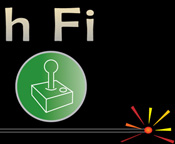A Brief History of Wine
As my current job involves selling vineyard netting, research often brings up interesting information related to wine.
In researching one particular vineyard, it was revealed that the wine maker qualified at the Montpellier University of Oenology and during his compulsory one year military service, he was the Legions wine purchasing adviser. This sounds like a particularly cushy job and also da istinctly French occupation for an army officer.
This isn't an original French idea however as in the days of the Roman Empire, soldiers on active duty were given two pounds of bread per day, meat, olive oil, and wine.
A major item in the sustenance of the French soldier during the First World War, and extremely important to his morale, was the daily ration of wine. This wine, or 'pinard', was a simple red country wine but, of a kind to which the peasant soldiers were no doubt well accustomed to and enjoyed.
Interestingly, after the Second World War, the decline in standards was linked to the rationing of the fermented grape. An article from Time magazine in 1952 illustrates this:
The proposition—to a Frenchman—was absurdly simple: if the French army is not all it once was, it is due to the fact that the French soldier is not getting enough wine. "Wine," explained Gaullist Deputy Gabriel Seynat, a physician and winegrower himself, "contains phosphates, glycerine, iron, minerals and vitamins. It furnishes the organism with tissue and energy. It aids digestion, increases cerebral activity, appeases fatigue and creates the strength to work."
Moreover, continued the deputy, wine "induces a state of euphoria that gives one confidence."
Faced with such self-evident truth, France's National Assembly last week gave preliminary approval to a bill raising the French soldier's daily wine ration from 500 to 750 grams (approx.1½pts.) a day. There was not a single dissenting vote.
Today France uses a ration called the "Ration de Combat Individuelle Rechauffable" (Combat Ration Individual Reheatable), or RCIR. A single ration contains a whopping 3200 calories and is intended to provide the nutritional needs for one soldier for one day or 3 meals.
Each RCIR meal box contains two ready-cooked entrees, an appetizer, one package of instant soup, a cheese spread, salted and sweet crackers, a breakfast kit, sugar, an energy bar, a chocolate bar, chewing gum, caramels, hard candies, multipurpose paper towels, water purifying pills, and a reheating kit with matches, fuel tablets, and a disposable folding stove. A handy piece of survival kit I'm sure you'll agree.
Until a few years ago, each came also with a bottle of wine. Now the wine is rationed separately.
Perhaps it will only be a matter of time before it makes a reappearance?





















2 Comments:
Hi Phil, I added link to your blog from mine. Still quite new to all this melarkey but it is interesting the the number of people who have linked to it already. Should have done this years ago when The Lost Chord was published.
Charles Bukowski used to be a favourite of mine although I don't think I read Pulp though. Read a couple of biographies about him which are almost more interesting than the books he wrote.
Going to start posting a few excerpts from new novel although still no idea when it is going to be published.
Sounds like you having fun in Oz. Best wishes to Lou.
Tony
That is such a cool article :D I would never have thought that wine would come by the bottle with food for soldiers until so recently. The Romans I can understand, but the very recent French Army?
Cool that they still hold it's value highly. I wonder what the chances are of beer having the same said about it? I guess it does increase your likelihood of fighting :P
Post a Comment
<< Home